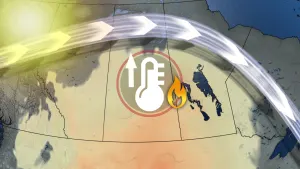
Parts of Lake Tahoe closed after chipmunks test positive for plague
Today, plague is treatable in humans.
Officials were forced to close parts of the south shore of Lake Tahoe in California earlier this month after some chipmunks tested positive for plague, the Associated Press reports. The animals did not have contact with humans, officials say.
Plague is naturally occurring in the area, with the most recent human case occurring last summer. The patient, a south shore resident, received medical treatment and recovered at home.
Hikers, people doing outdoor activities, and pets frequenting places where plague is known to occur are advised to stay on trails avoid contact with wildlife.
WHAT IS PLAGUE?
Plague is a bacterial disease that is spread by rodents and their fleas. Humans can contract it by being bitten by a rodent flea carrying the bacterium Yersinis Pestis or by touching an infected animal.
Most know about the disease from the 'Black Death' outbreak that killed upwards of 200 million people in Europe in the Middle Ages.
Today, the disease is treatable with antibiotics if caught early. If not, it may still result in serious death or illness, the CDC says.
In humans, symptoms typically present within two weeks and are flu-like in nature - consisting of weakness, fever, chills, and headaches.
DOES PLAGUE EXIST IN CANADA?
According to the Government of Canada, there has only been one known case of plague in the country, in 1939.
The World Health Organization reports between 1,000 and 2,000 human cases of plague annually, but the actual figure may be higher.
Thumbnail image courtesy: Skylar Ewing/Pexels.










